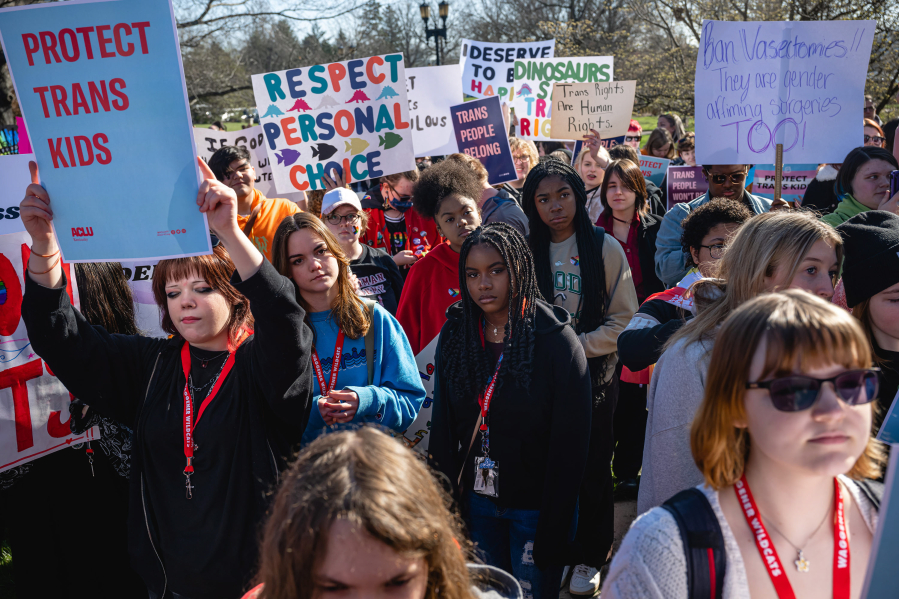So far in 2023, barely a day has passed without state lawmakers across the country introducing a new anti-LGBTQ bill. Many of those bills are advancing, and in some cases, being enshrined into law.
Kentucky on March 29 became the eighth state this year to ban gender-affirming care for minors, after Republican lawmakers overrode Democratic Governor Andy Beshear’s veto of the measure known as SB 150. West Virginia passed a similar bill the same day.
At least 425 anti-LGBTQ bills have been introduced this year — more than in the past five years combined. They vary in scope, and more than 20 have so far made it into law. Some 127 of the bills focus on limiting health care for transgender people in various ways, with nine states so far converting some of those proposed restrictions into law.
At the same time, some lawmakers have moved to protect LGBTQ people: Utah this year codified a ban on the discredited practice known as conversion therapy for minors, joining 19 other states that have similar laws on their books.At the federal level, Republican lawmakers have introduced two bills that would affect the LBGTQ population in schools. The bills aren’t expected to pass in a Democratic-controlled Senate, but introducing such bills is enough to make young LGBTQ people fearful, the mental health advocacy group The Trevor Project has found.




